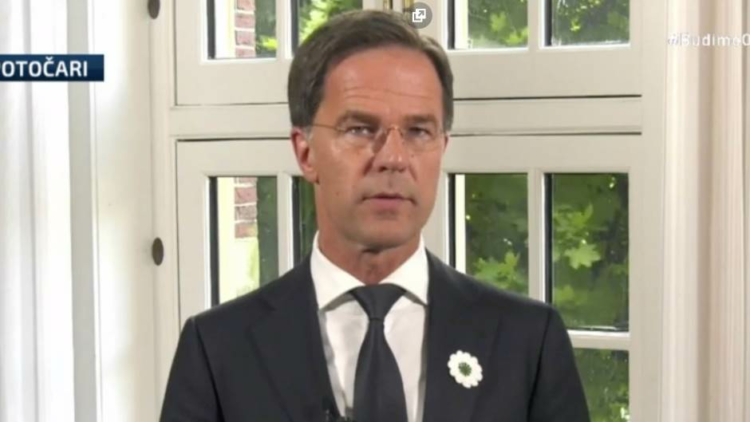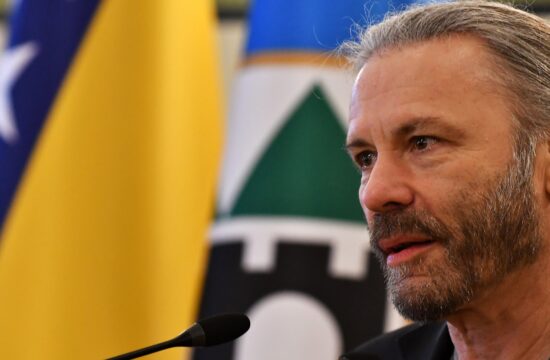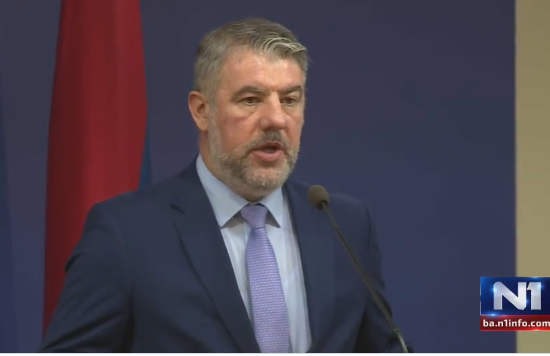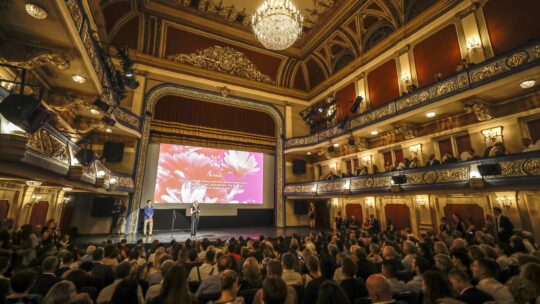
In his video message on the occasion of the 25th anniversary of the genocide in Srebrenica Prime Minister of the Netherlands Mark Rutte questions the responsibility and the lack of readiness on the reaction of the international community in July 1995.
Brothers, families, your excellencies, ladies and gentleman. Today is a day of remembrance. 25 years ago more than 8,000 innocent boys and men were killed in Srebrenica.
The worst atrocity on European soil since the end of the Second World War. Twenty-five years ago, yet it feels only like yesterday.
Because of the grief, anguish, and the loss of your sons, fathers and husbands, mothers continue to ask themselves what kind of man would my sone have become.
Would he have had a family of his own by now? Questions that will never be answered.
The pain and anguish too, for the survivors of Srebrenica whose souls will always be so deeply scarred by the terror they experienced, and the horror endured, for the international community which was unable to protect a vulnerable population from extreme aggression and cruelty.
For the Netherlands which, as part of that international community, took on a task that would forever connect it with Srebrenica. And for the men and women of the Dutch UN Battalion who felt powerless in July 1995 and who are still haunted by those memories. But, sadly we can't change history – history changes us.
And once more, Srebrenica will never be a closed book because victims are still being identified. New burials are still taking place in Potočari, and there are still mothers searching for their sons.
That is the hard truth – a truth we must not, can not and will not ignore. So, we speak out whenever we can against polarising language, glorification of war criminals and genocide denial.
We work to foster reconciliation and we stand up for our shared European values. Because if the genocide in Srebrenica has taught us anything, it's that division and hate can lead to the ultimate evil.
And that we have to do everything in our power to make sure it never happens again.
Today, as we commemorate those terrible events, we all feel a deep bond with the people of Srebrenica. With you, and with your loved ones, who to our regret could not be protected.
We stand side by side with the survivors who will carry the pain and grief with them for the rest of their lives.
And we honour all the sons, brothers and husbands who will forever be missed.
Today, we bow our heads in silence,” the Dutch Prime Minister said in his video message.
Norwegian Prime Minister Erna Solberg said in her video message marking the 25th anniversary of the Srebrenica genocide that the horrific crime that took place in and around Srebrenica in 1995 left deep scars in Bosnia and across the European continent.
“I am deeply honoured to be invited, and I am truly sorry that the Corona pandemic has made it impossible for me –
To travel to Bosnia and Herzegovina to participate at the commemoration today.
Today, we mark the 25th anniversary of the Srebrenica genocide of July 1995. This terrible crime left deep scars in Bosnia and Herzegovina as well as across the European continent.
Today, we mourn the loss of the many thousands of victims of the massacre in Srebrenica. Our hearts and sympathy go out to their relatives. It is important to remember this tragedy and learn from it.
We must fully acknowledge the past if we are to heal the wounds and build a future – based on truth and reconciliation,” Norweigan Prime Minister said in her video message.
Swedish Prime Minister Stefan Lofven recalled that Sweden provided shelter for over 60,000 Bosnian refugees who fled the 1002-1995 war in Bosnia, adding that his government strongly opposes the glorification of war criminals and genocide denial.
“There are many people in Bosnia and Herzegovina, who since the war in the 1990s demonstrated mutual empathy, dignity, and respect. among others, I think about women's organizations who are Sweden'spartners in Bosnia and Herzegovina, they have shown remarkable strength working to rebuild social fabric and trust, addressing the legacy of the past. Sweden achieves to work closely with those who are making efforts lasting reconciliation
My heart goes out to those families. There is no place for denial of the crimes committed during the war, nor for the glorification of individuals who have been found guilty of those crimes by the courts. It is a Swedish government firm view that all acts and statements that diminish or deny genocide are deeply disturbing and contrary to most fundamental global values. The international community failed to protect the victims in Srebrenica at the time when they needed us the most.
Sweden welcomed 60,000 refugees from Bosnia and Herzegovina during the war. They brought memories and experiences that are now part of our common history. To honour those who are no longer with us, and for the sake of all those who are with us, and for coming generations, wžemust work to create a better future for all,” Lofven said in his video message.




